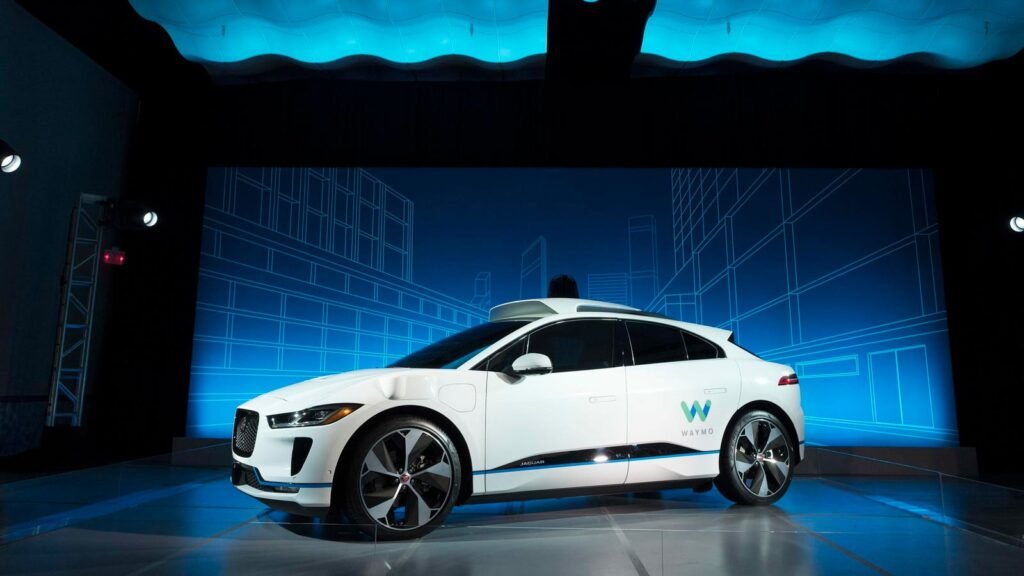(AP Photo/Mark Lenihan, File)
Copyright 2019 Associated Press. Unauthorized reproduction is prohibited.
The rise of self-driving cars is not only transforming the way we transport ourselves, but also creating an ecosystem of new job opportunities at the intersection of traditional automotive expertise and cutting-edge technology.
Unemployment is a top concern for today’s workers, but a report from the Chamber of Progress, an industry group that advocates for technology companies on issues related to self-driving cars, says a promising job market for the AV industry is on the horizon. It became clear that it was coming.
The study, conducted by consultancies Stair and Force Economy, predicts that the introduction of self-driving cars in the United States could create up to nearly 500,000 jobs over the next 15 years. The report estimates that for every 1,000 self-driving cars produced and deployed annually, approximately 190 workers will be needed in manufacturing and service.
Job growth will be across a wide range of sectors. These include roles in production, distribution, maintenance, upgrades, and repairs. Additionally, there will be demand for software engineers specializing in machine learning and simulation, hardware engineers developing sensors and systems, research scientists working on advances in self-driving technology, and operations professionals managing vehicle deployments.
Additionally, a career in this field offers interdisciplinary collaboration, where engineers, data scientists, designers, and policy experts work together to tackle complex challenges. This collaborative environment not only fosters professional development, but also puts employees on the cusp of breakthrough innovation.
Companies driving change
Employees in the AV industry have the opportunity to shape the future of mobility by improving road safety, increasing accessibility, and contributing to the development of sustainable transportation solutions.
The development and deployment of driverless vehicles is currently being led by three major companies in particular: Waymo, Cruise, and Tesla.
Waymo, a subsidiary of Alphabet, has been a pioneer in this space since its inception in 2009 as Google’s self-driving car project. The company developed Waymo Driver, a comprehensive self-driving platform that enabled the world’s first fully driverless commercial rides. -Ride-hailing service.
General Motors-backed Cruise is another major player in the AV industry focused on developing and deploying self-driving taxis in urban environments. The companies will combine multi-sensor systems, including LiDAR, radar, and cameras, with high-resolution maps to navigate pre-mapped areas.
In contrast, Tesla is pursuing a vision-only approach using cameras and neural networks, aiming for a more scalable solution that could work anywhere.
Jobs in the self-driving car field
According to the Chamber of Progress, 82% of workers in the AV industry earn more than the average wage in the United States. Additionally, many of these high-paying positions are available to individuals without a college degree.
Pursuing these new career opportunities will put prospective candidates at the forefront of a rapidly evolving industry.
remote vehicle operator
Companies like Vay offer “teledriving” services, where a remote operator controls the vehicle from a distance. This role combines elements of traditional driving with technical skills, creating a new category of employment.
fleet support technician
As autonomous vehicles grow, there is a growing need for professionals who can maintain and service these high-tech vehicles.
Mapping and sensor specialist
The self-driving industry requires experts who can process and improve high-resolution maps and develop and maintain advanced sensor technology. These roles are critical to enhancing the perception and navigation capabilities of self-driving cars.
AI and Machine Learning Engineer
The core of self-driving technology relies on advanced AI systems. Engineers who can develop and improve the algorithms that power self-driving cars are in high demand.
Safety and Compliance Expert
The regulatory environment surrounding AVs is complex, so you need experts who can properly manage safety standards and ensure compliance with evolving laws.
user experience designer
As the interface between humans and AVs evolves, designers are needed who can create intuitive and user-friendly experiences for passengers using these new transportation systems.

